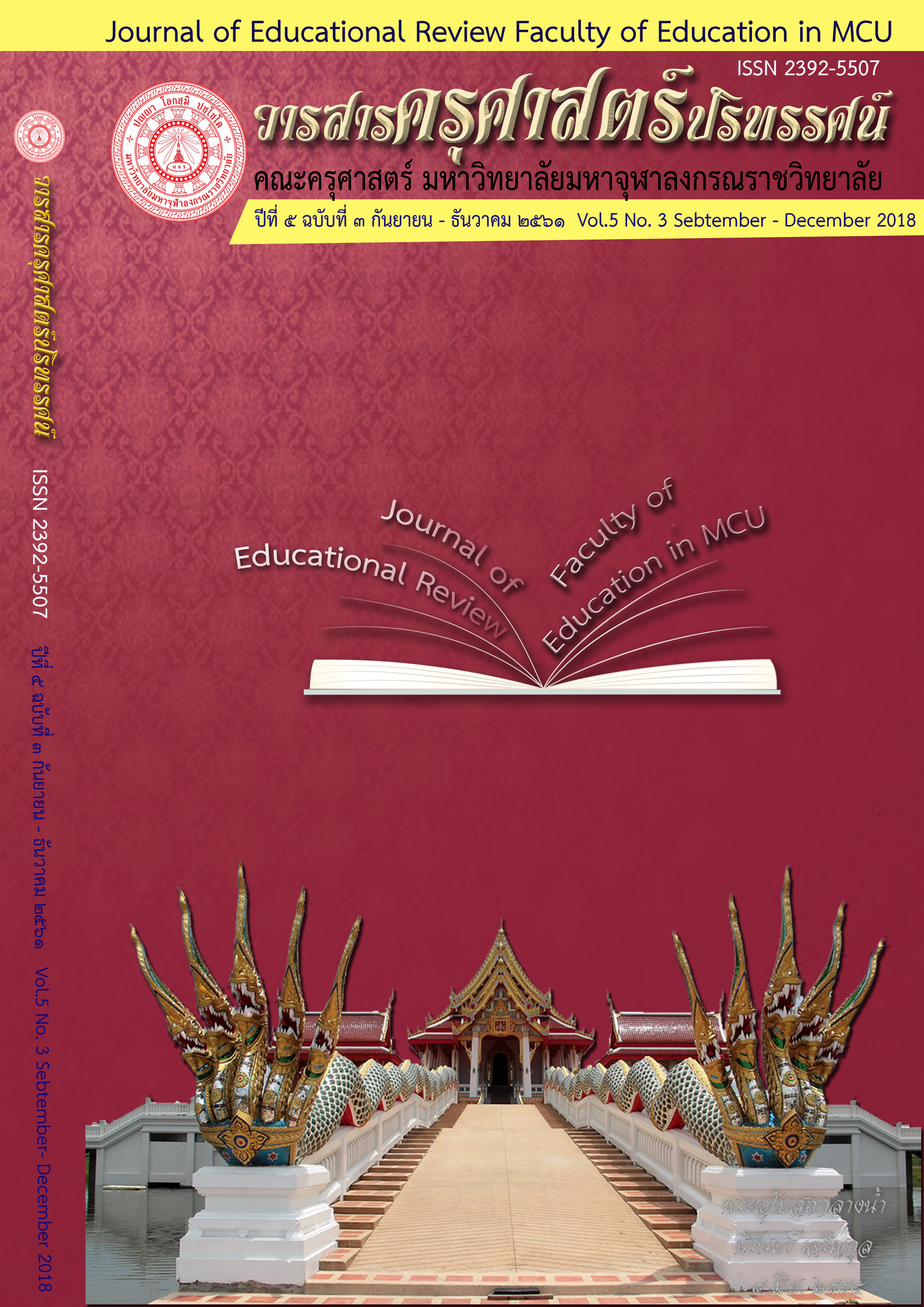Desirable competencies of graduates in Educational Technology and Communications of the job market
Main Article Content
Abstract
This qualitative research used in-depth interview to gather data from employees and employers. The purposes of this study were to: 1) study the desirable competencies of employers in the field of Educational Technology and Communications (ETC) in ASEAN Economic Community (AEC) and Thailand 4.0 era, 2) study the job performance competencies of students who graduated from ETC, and 3) propose how to develop or improve curriculum and teaching and learning management for improving learners’ competencies to meet the needs of employers in the AEC and Thailand 4.0 era.
The research findings were as follows:
1. There were two important terms: competencies and skills. The employees found that language competency was the most important thing. The second important competencies were technology usage and innovation development competencies. The third important competency was communication competency. The last important competency was creativity competency. For the skills that employees currently have at a high level including analysis skills, development skills, evaluation skills, media selection skills, media evaluation skills, leadership, and resource management skills. While design skills, implementation skills, project management skills, and quality assurance skills were at a moderate level.
2. For the job performance competencies of the graduated, employers also agreed that the most important competency was language, followed by communication competency. Moreover, employees have skills at a high level include evaluation skills, implementation skills, media evaluation skills, leadership, and resource management skills. While design skills, development skills, evaluation skills, and project management skills were at a moderate level. Finally, media evaluation skills and quality assurance skills were at a low level.
3. The recommendation for developing or improving curriculum were as follows: design to meet the needs, student-centered learning, organize study visits, cooperative education, enhance quality assurance, enhance presentation skill, enhance leadership skills, enhance resource management skill, and develop language skill.
Article Details
ทัศนะและความคิดเห็นที่ปรากฏในบทความในวารสารฉบับนี้ถือเป็นความรับผิดชอบของผู้เขียนบทความนั้นเพียงผู้เดียว และไม่ถือเป็นทัศนะและความรับผิดชอบของกองบรรณาธิการ
กองบรรณาธิการขอสงวนสิทธิ์ในการคัดเลือกบทความลงตีพิมพ์และจะแจ้งให้เจ้าของบทความทราบหลังจากผู้ประเมินบทความตรวจอ่านบทความแล้ว
ต้นฉบับที่ได้รับการตีพิมพ์ในวารสารครุศาสตร์ปริทรรศน์ คณะครุศาสตร์ มหาวิทยาลัยมหาจุฬาลงกรณราชวิทยาลัย ถือเป็นกรรมสิทธิ์ของคณะครุศาสตร์ มหาวิทยาลัยมหาจุฬาลงกรณราชวิทยาลัย ห้ามนำข้อความทั้งหมดหรือบางส่วนไปพิมพ์ซ้ำ เว้นเสียแต่ว่าจะได้รับอนุญาตจากมหาวิทยาลัยฯ เป็นลายลักษณ์อักษร


